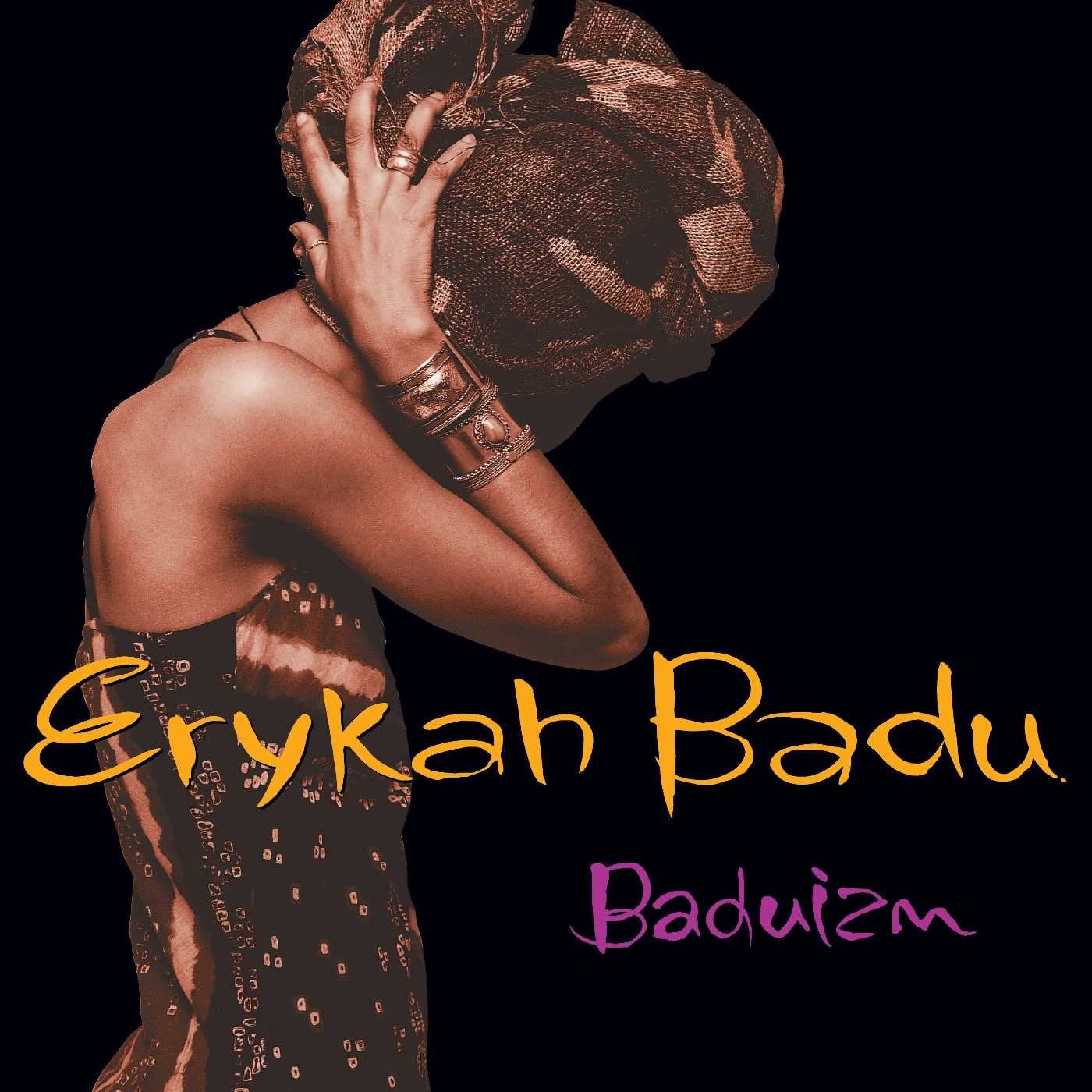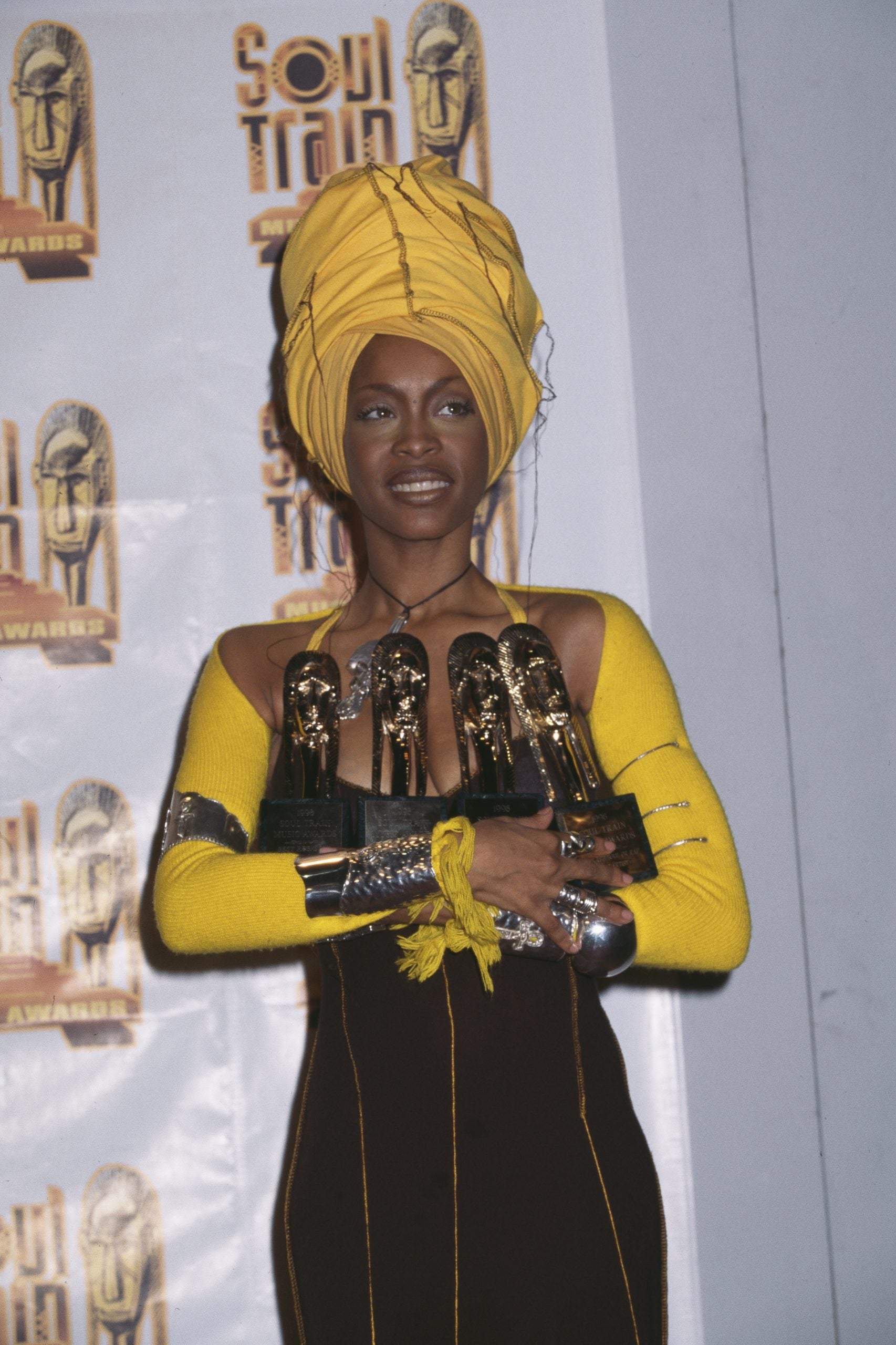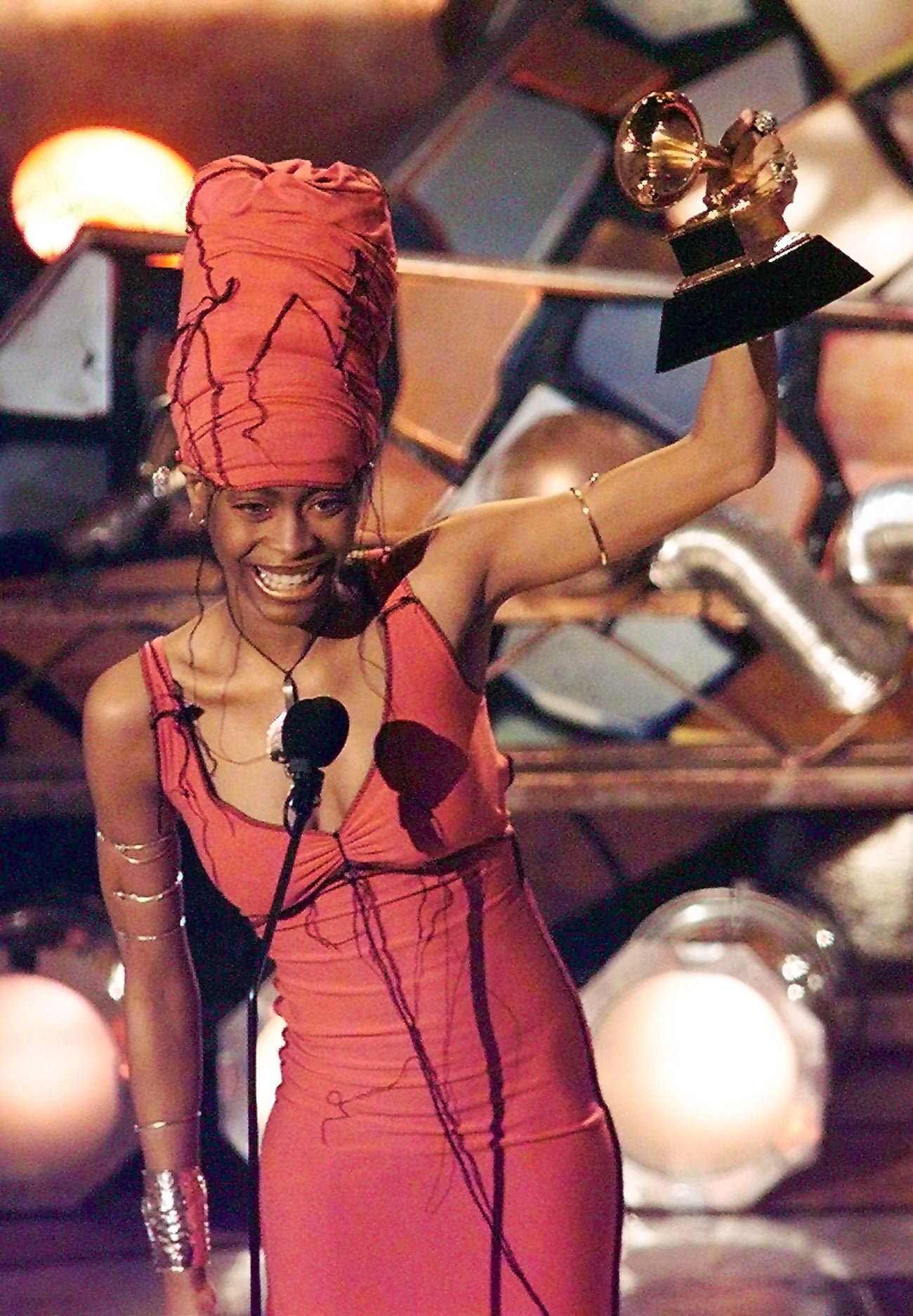
Whipping the bewitching voodoo that was Baduizm on the world 25 years ago — when her debut album became an instant neo-soul classic on Feb. 11, 1997 — Erykah Badu never imagined that its spell would go “on and on,” like the title of her debut single. Or that she would forever change music and lives.
“I didn’t know I was representing anything just being myself,” says the 50-year-old artist born Erica Wright. “But I learned that people were stifled without a voice and that my voice was their platform. It’s what they used to grow and what gave them inspiration for themselves. I didn’t know that at first. But once I started learning that, then the headwrap got bigger and bigger; it was more and more fabric. I came to an understanding that, ‘Okay, people need this thing. You represent that, and it’s not a mistake. It’s something that needs to continue.’ ”

The groundbreaking, Grammy Award-winning Baduizm almost magically transformed Badu into an R&B priestess and pioneer representing the ladies in the neo-soul movement that had been propelled by D’Angelo’s Brown Sugar in 1995 and Maxwell’s Urban Hang Suite in 1996. Now the movement had its queen.
The road to that queendom — and the crowning achievement of Baduizm — started while Badu was studying theater at Grambling State University in Louisiana. Her cousin, Robert “Free” Bradford started sending her cassette tapes of beats that he was making, and one of them inspired her to write “Appletree.” With Bradford on production, the two continued to work on what would become the Baduizm demo back in their hometown of Dallas, turning a bedroom in their grandmother’s house into a studio.
“We developed a sound and style,” says Badu. “We were really, really influenced heavily by ’90s hip-hop. Nas had just come out, the Notorious B.I.G. had just come out. We were East Coast hip-hop fans. And A Tribe Called Quest had already laid their foundation and influence in hip-hop. So we were sampling really obscure jazz and soul records and stuff like that because that’s what I was influenced by growing up.”

Badu was also inspired by the ’90s R&B she was hearing from Brandy and Mary J. Blige. In fact, the beginning of “On & On” was a direct nod to Blige’s “Real Love.” “I always had these little subtle cryptic messages, and that was a message to Mary, like, ‘You know, you’d buy this.’ I was thinking, ‘I want these people who I believe are my peers to hear this music.’ ”
It was that track — the second song that she wrote — that convinced Badu that she was really on to something special. “I didn’t know I had anything until ‘On & On,” she says. “On ‘Appletree,’ I could have gotten lucky, you know, but after I wrote ‘On & On,’ I felt like, ‘Okay, this is what this is.”
Badu would eventually take her demo to the SXSW conference and festival in Austin, Texas. There she passed on her music to Tammy Cobb, who was then manager of Mobb Deep. “She called me a couple of days after that, and she was like, ‘This is beautiful.’” Cobb connected Badu with Kedar Massenburg, who was managing D’Angelo at the time, and he would go on to sign her as one of the first artists on his label, Kedar Entertainment.
After moving to New York, finding her base and tribe in Brooklyn, Badu began to flesh out more of Baduizm. That was where she took “Next Lifetime” — which had originally been written to a different beat — to the next level with producer Tone the Backbone. “ ‘Next Lifetime’ kind of broadened the scope of what the possibilities were for me,” she says of her sonic upgrade. “My Free production was very grimy … real underground hip-hop. That’s how the whole demo sounded. It was polished to what we hear today, but the demo was just very raw, crackly, super underground mixtape.”
Keeping it East Coast, Badu also ended up going to Philadelphia to work with The Roots, including Ahmir “Questlove” Thompson and James Poyser. “They were big fans of A Tribe called Quest, so there was a lot of jazz influence,” she says. “And that really touched my heart because those were my roots.” From those Philly sessions came “Sometimes” and the fan favorite “Otherside of the Game.” “I stayed in Philly for a few months,” she says. “It was me and James sitting at a piano in a studio, coming up with different things.”
As for the story behind another key Baduizm track, “Certainly,” Badu says, “I was thinking about us as Black people in America, how we have to manage our love affairs and our relationships … and then we got to manage the relationship with America. It’s two different things that are happening simultaneously that make it a little bit more difficult for us. We’re using all of this energy trying to figure out who we are and where we fit into this society.”

While Baduizm was no doubt a very personal statement and a very personal vision, it wasn’t all purely autobiographical. “Some of those [songs] are specifically about things I was going through, and some of them were things that I was seeing, you know, from an observation deck,” says Badu. “But it’s based largely on where I was in my life. During the moment, there was no internet. So there were no expectations or no pre-judgments based on my personal life. I was just out there floating and creating. So there was this big freedom. It would be almost impossible now for a new artist to come out with a record and for you not to know what they look like, maybe something about their personal life. They would probably be on social media, all that stuff. I mean, it’s a different time, a different world.”
Badu recalls the exact moment that she knew her life would never be the same after Baduizm. “It was my first show in New York,” she says. “My record had not come out. Kedar had pressed 100 copies of my CD and numbered them and gave them to influencers and journalists. And they knew all the words. This is before the album came out. It was an undeniable moment where you felt like, ‘Okay, this is something.’ ”
And we’re still vibing to Baduizm 25 years later, getting caught up in all the soulful and spiritual feels that have provided an essential part of the soundtrack of our lives. “I imagine it feels the way I felt when I listened to Stephanie Mills and Anita Baker,” says Badu, who is feeling that positive Baduizm energy coming full circle now. “It’s coming back — people wanting to take care of themselves, wanting to eat healthy, wanting to raise their family vibrations. All these things are happening right now. All of that stuff was also happening in those late ’90s, and I wasn’t the only person doing it. But I think that I was able to poke a hole in the game so that all of these other things could come through.”




